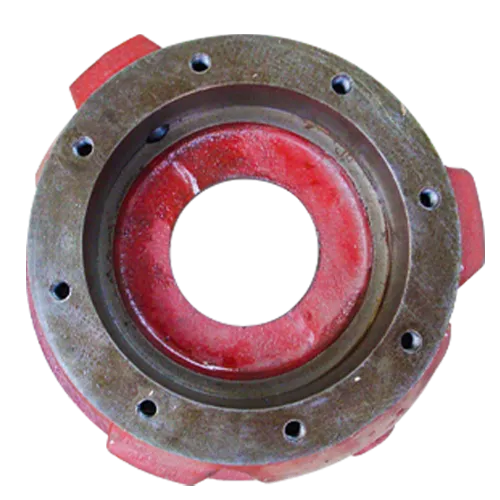Mobile:+86-311-808-126-83
Email:info@ydcastings.com
English
Creative Solutions for Water Pipe End Caps to Enhance Durability and Aesthetic Appeal
Understanding the Importance of Water Pipe End Caps
Water pipe end caps are essential components in various plumbing systems, used in both residential and industrial applications. These fittings are designed to seal the ends of pipes, preventing leaks and ensuring the proper flow of water. In the broader context of plumbing and water management, understanding the function and significance of end caps can enhance the efficiency and durability of any piping system.
What are Water Pipe End Caps?
Water pipe end caps are typically constructed from durable materials such as PVC, metal, or rubber, depending on the type of piping in use. They serve to close off the end of a pipe, thus preventing any external contaminants from entering the system and ensuring that the water being transported remains clean and free from obstruction. End caps are available in various sizes and designs, making them suitable for different pipe diameters and configurations.
Applications of Water Pipe End Caps
One of the primary uses of water pipe end caps is in the construction of irrigation systems
. In agricultural practices, water must flow efficiently through pipes to ensure crops receive the necessary hydration. End caps help to maintain the integrity of the irrigation system by blocking off unused ends of pipes, thus preventing water waste and maintaining pressure within the system.In residential plumbing, end caps can be used in water supply lines, such as when upgrading fixtures or appliances. If a homeowner decides to replace a sink or a toilet, the old supply lines might need to be capped to prevent water leakage. Additionally, end caps are vital in situations where a section of a pipe is removed or decommissioned. They provide a simple and effective method to seal off these sections without the need for extensive repairs.
water pipe end cap

Benefits of Using Water Pipe End Caps
The most significant benefit of using water pipe end caps is their ability to prevent leaks. Leaks in plumbing systems can lead to water damage, increased utility bills, and even structural issues in buildings. By securing the ends of pipes with appropriate caps, one can minimize the risk of leakage and maintain a stable water flow.
Moreover, using end caps can enhance the longevity of a piping system. When pipes are left open, they are susceptible to debris, dirt, and corrosion. End caps protect the interior of the pipe from these damaging elements, which can lead to blockages and ultimately system failure. By investing in quality end caps, property owners can extend the life of their piping systems and reduce maintenance costs over time.
Choosing the Right Water Pipe End Cap
When selecting the appropriate end cap for a specific application, several factors should be considered. The material of the cap should match that of the pipe for a secure fit and optimal performance. Additionally, it is crucial to select the correct size; an ill-fitting cap can lead to leaks and other plumbing issues.
In conclusion, water pipe end caps are a critical aspect of both residential and commercial plumbing systems. Their ability to prevent leaks, protect against contamination, and enhance the longevity of pipes makes them indispensable in effective water management. Whether for irrigation, residential plumbing, or industrial applications, understanding and utilizing water pipe end caps can lead to significant improvements in efficiency, safety, and cost-effectiveness in water usage. Investing in quality materials and ensuring proper installation will pay dividends in the long run, safeguarding property and resources alike.
-
Efficient Automobile Water Pump: Reliable Cooling for Engine ManifoldsNewsSep.01,2025
-
Premium Fan Housing & Motor Casing for Optimal AirflowNewsAug.31,2025
-
High-Performance Automobile Water Pump & Electric SolutionsNewsAug.30,2025
-
Expert Stainless Steel Casting | Precision & Durable Metal PartsNewsAug.29,2025
-
Precision Metal Castings: Aluminum, Stainless Steel & Die CastingNewsAug.28,2025
-
Superior Aluminum Castings in Automotive Engine PartsNewsAug.22,2025











